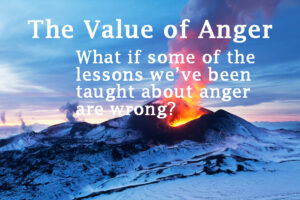How to Choose the best psychotherapist in NYC

What if some of the lessons we’ve been taught about anger are wrong?
In today’s modern environment, anger is generally frowned upon for its confrontational and abrasive nature. Since childhood, we’ve been taught that anger should be minimized, and that it stood in direct contradiction to positive aspects like happiness and quality of life. Yet what if our emotional complexion was more complex than a zero-sum game, and we could actually take certain aspects of anger that are helpful, and integrate them into our daily lives? In short, could we learn something from anger?
Let’s break it down. What do we mean by anger? Well, anger is an emotion. Anger can manifest in various forms. Physically, anger presents as rushing blood, bulged eyes, clenched fists, and/or a rapid heartbeat. Behavioral expressions of anger may include a raised voice, rolling eyes, passive aggressive or aggressive language, or physical violence against people or property. Emotions of anger have range of styles, flavors and intensities such as mad, resentful, upset, irritated, furious, enraged, aggravated, annoyed, irate ticked off.
Generally, we can categorize these aspects into two buckets: those that primarily effect yourself, and those that primarily affect others around you. Of course, many of the aforementioned physical presentations, expressions, and emotions of anger may fall more in one bucket than the other, but for our purposes, we’re going to focus on those aspects which primarily fall into the category of effecting yourself for the purpose of personal learning, growth or creating a value from it.
Why do we care about the aspects that affect us? Because we are in the best position to engage with our own emotions. Though it’s true that anger and its effects may blind us, if we are aware of our raw reaction to those emotions – including even how our mind is warped in the process – we can start to uncover lessons about ourselves.
Let’s start by stating that those that suggest that anger is an entirely negative emotion are limited to anger’s greatest strength: its honesty. It has a message to deliver to us.
Regardless of the motivations behind our anger, the anger feeling offers a deep connection to a well of emotions. This tether is not only an invaluable source of information, but a lifeline to parts of ourselves that we may never have realize, understood or accepted.
In this way, anger can be a vital tool in our emotional toolbox. But how does this work? Firstly, it requires cultivation of awareness. This means knowing when two things happen: 1. Recognizing your own anger, and 2. Understanding what is happening to you when you are experiencing anger.
Having the skills of awareness and understanding what is happening are more difficult than one might expect to cultivate. We have all been in arguments in which someone claimed to “not be angry” when they clearly were. Anger sometimes, and especially when intense, places blinders on ourselves that uncomfortably prevents a clear assessment of our own state of mind. If we can accept that emotions sometimes blur perceptions, it would be unreasonable for us to expect that only we were invincible to its effects.
The second point is challenging too. The key for understanding what is happening to you is trying to take a moment to do two things: identify and assess. Identify what feelings you are experiencing, and assess the origin of those feelings.
You may say “but I’m feeling angry!”
Anger feelings are complex and often are woven with other emotions and judgments. For instance, your anger may come from feeling disrespected, unfairly wronged, vulnerable, guilty, or betrayed, among a myriad of other options. Identifying what feeling you experience is equally crucial, because that can be used to move on to #2 – assessing where those feelings came from.
These feelings can come from external or internal events, thoughts or from the actions of others or yourself. Many times, they may pop out from circumstance entirely unbeknownst to your conscious mind. As mentioned earlier, this exercise primarily requires honesty above all else, specifically; honesty with yourself and honesty about yourself.
In this conversation with yourself, it’s tempting to simply sit comfortable with your anger. But it can be rewarding both to yourself and those around you to take the time and the steps to peer into our emotional environment and help ourselves out.
Using these ideas, we can try to unravel the mysteries of our own anger. This also has the hidden benefit of actually beginning the process of dealing with the anger in itself in two ways. For one, it forces us to rationally evaluate situations in which we grow angry, partially slowing down the process of giving into anger altogether and letting it consume us and those around us. Second, it allows us to start making headway towards finding the deep roots of our anger, setting us down a path that ultimately seeks to address those roots and mitigate, or even just give recognition to the influence it has over our lives.
In this way anger can have great value for our lives, and relationship with others, ourselves, and our emotions.





